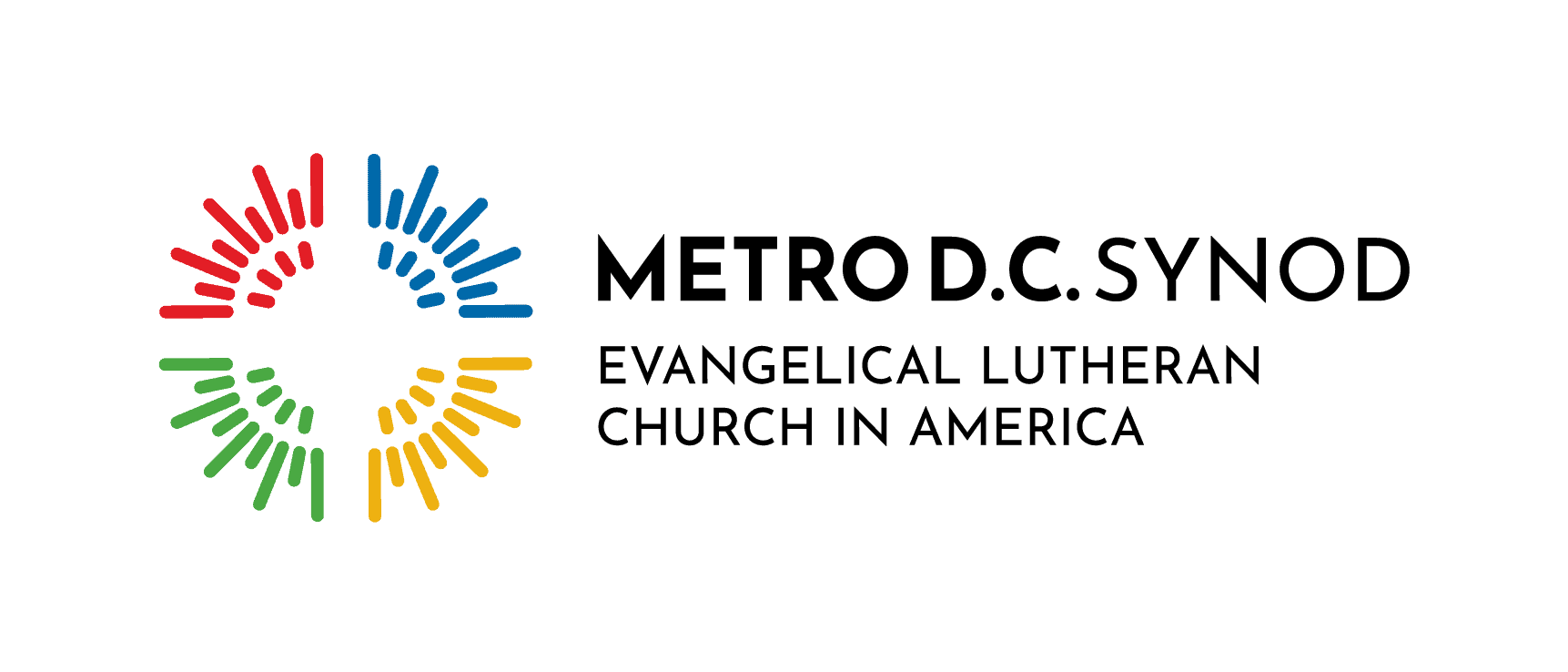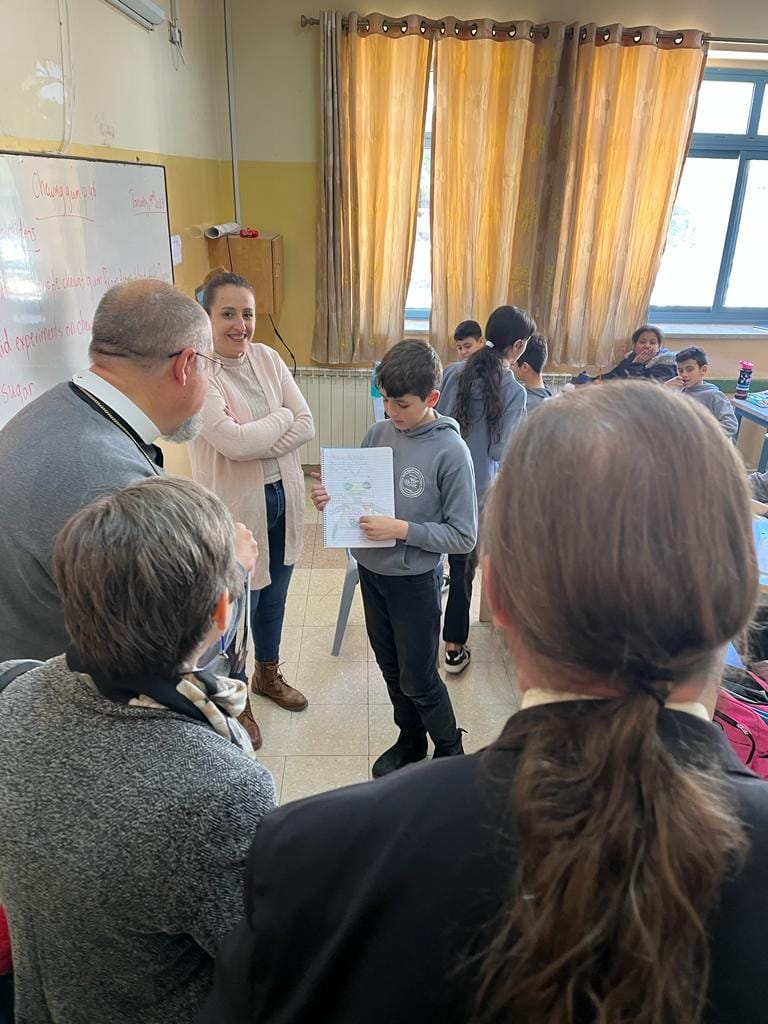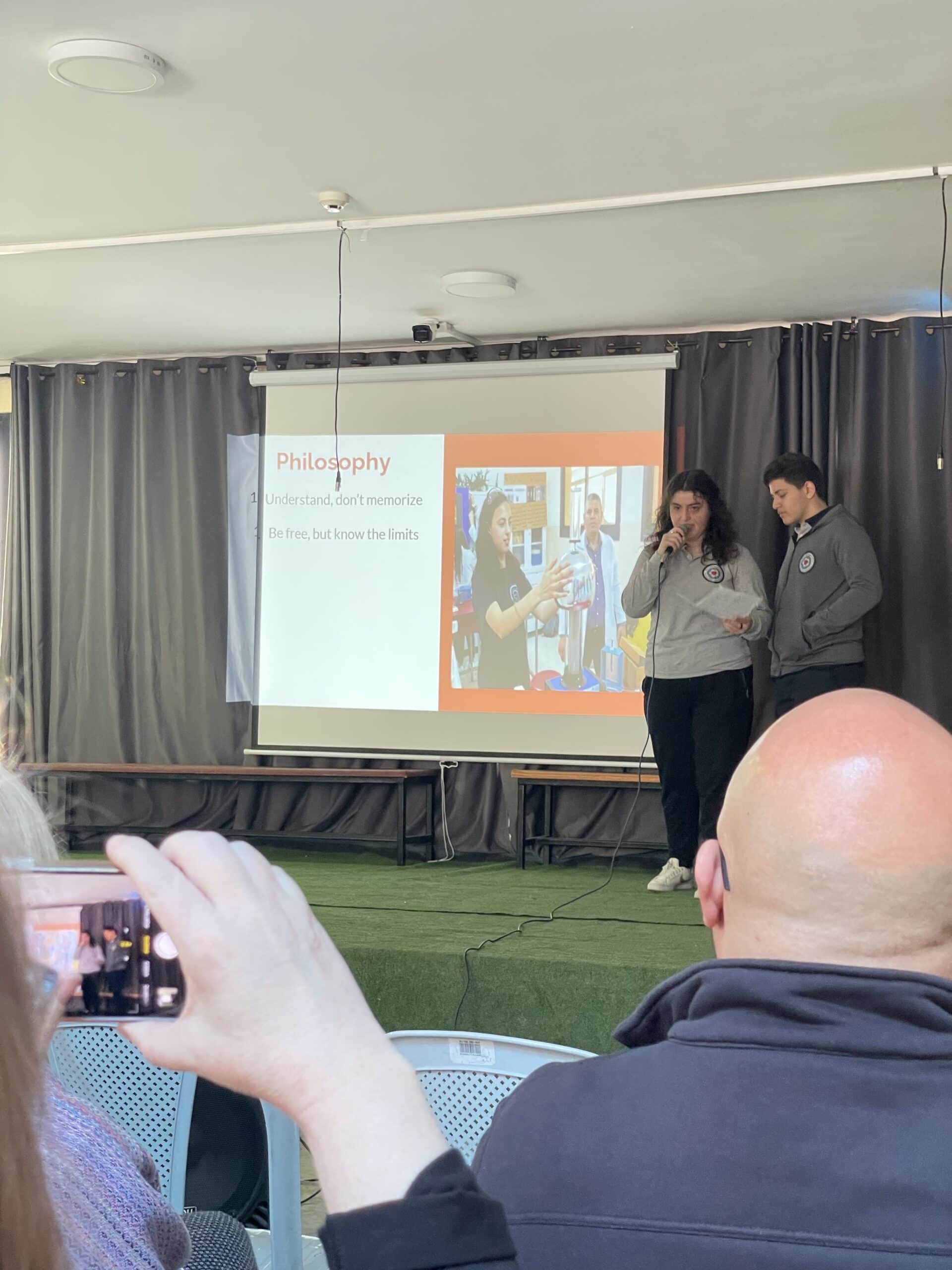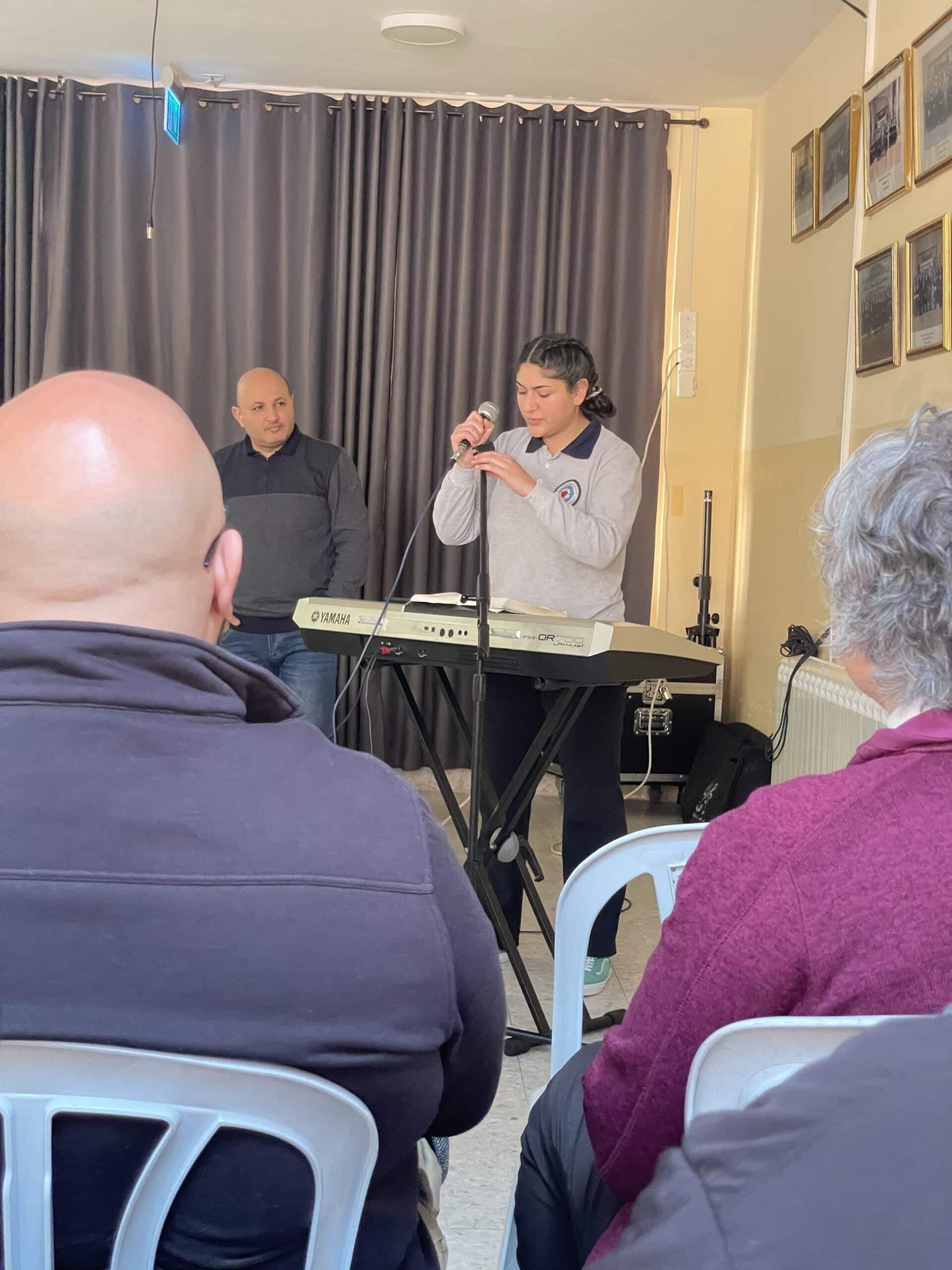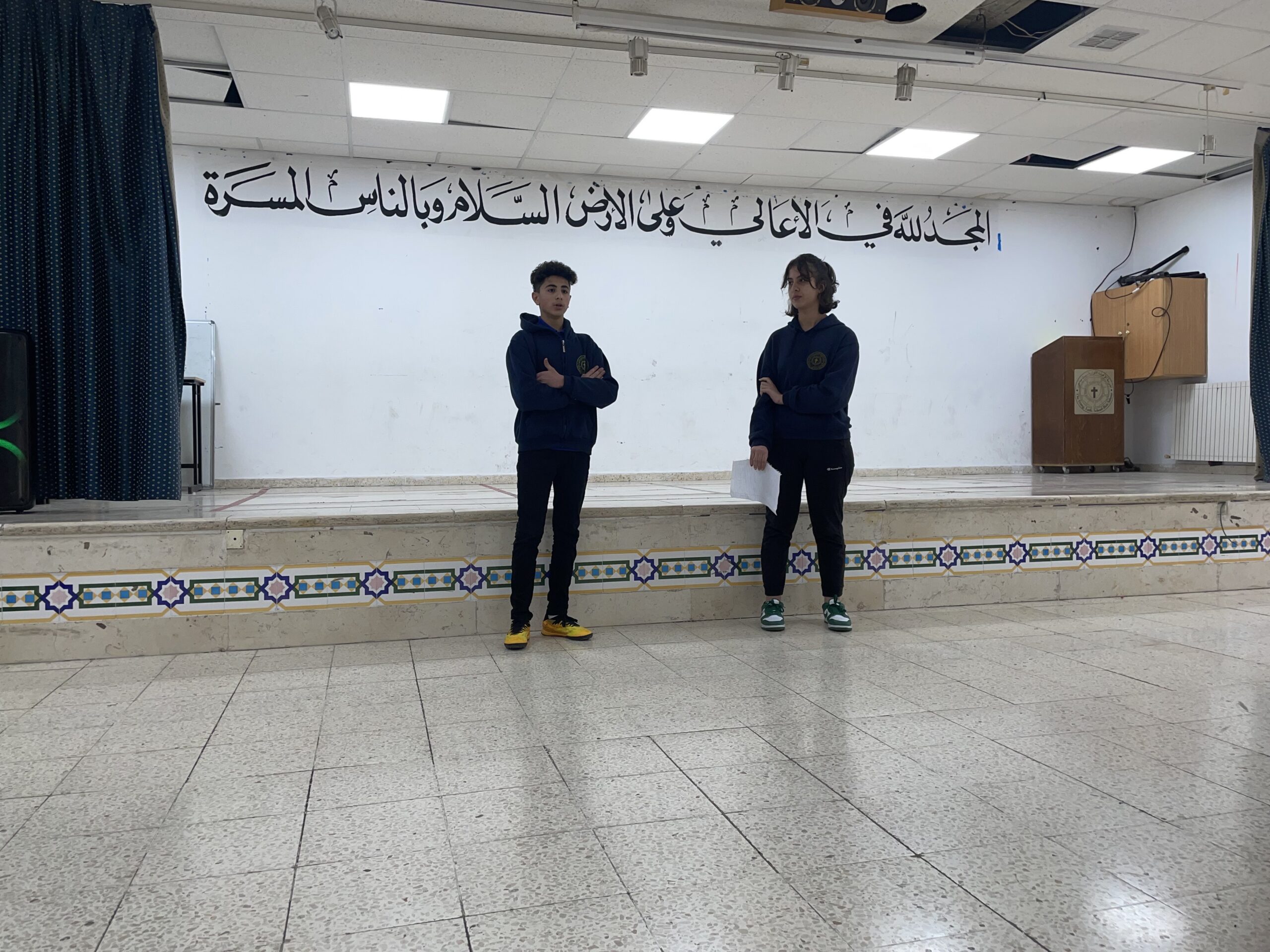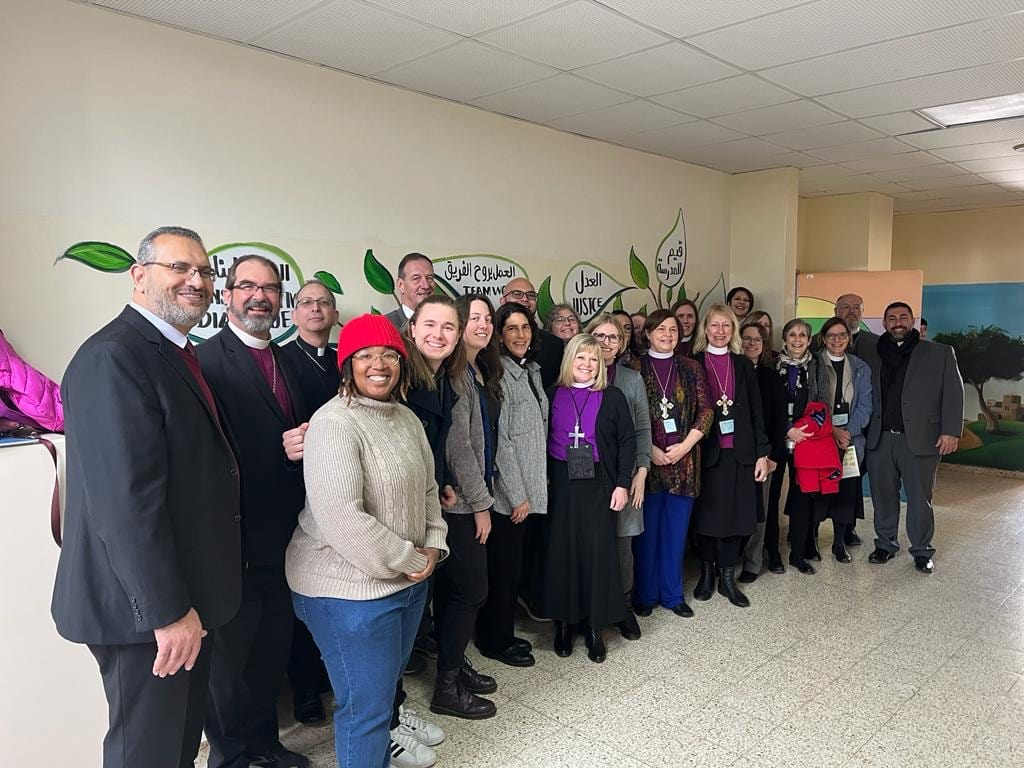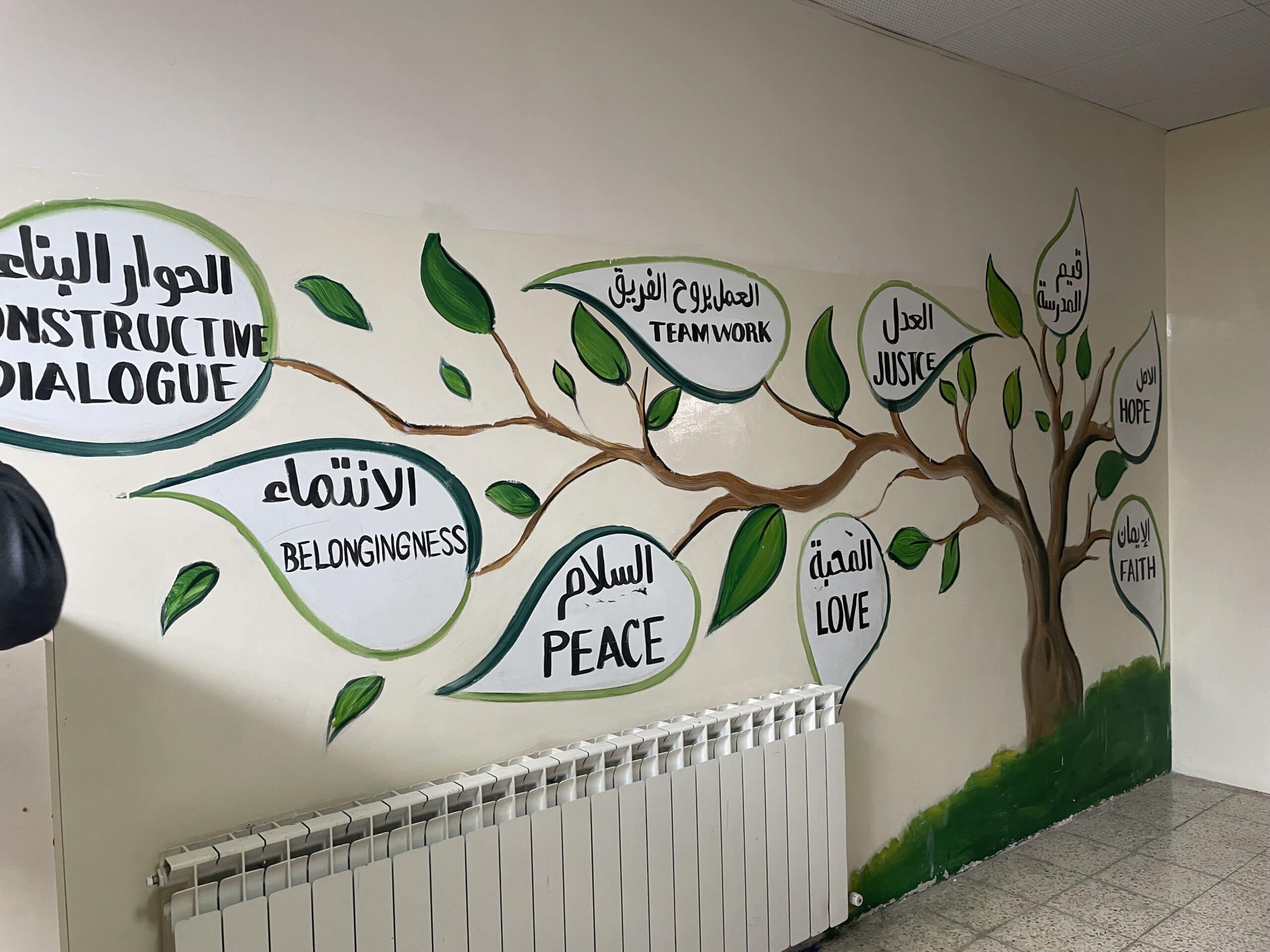Reflections from the Holy Land-Week 4

Visiting the Lutheran Schools of The Evangelical Lutheran Church in Jordan and the Holy Land was an experience I will not soon forget. Every presentation at each school was led by the students. They were fluent in multiple languages, talents, and skills. They were teachers par excellence, eager to share their cultural heritage and the culture they had co-created together as Christians and Muslim Palestinians learning and growing in the same school and holy land.
In their welcome and hospitality, the students shared some of their lived experiences. Students from Beit Sahour shared how they had never seen beyond the nine-block radius of their school and had never seen the sea even though it was only two miles away. Senior students shared how they might never see Bethlehem or Jerusalem because they were Palestinian and could not cross the checkpoint into the city, but were ready to go to college in Europe. All leaders in their own right with palpable maturity only obtained through hardship.
One program each school had in common was The Mediation Training Program. Students would enter the program in the fifth grade and complete their training in the seventh grade. Once students completed their program they were official mediators – conflict managers- and were called upon to mediate tensions among students.
In a land where conflict is part of their daily living, the children are trained and skilled to defuse heightened emotions and negotiate socio-political and cultural disagreements.
Isn’t this also true here at home? The difference is that in the Holy Land children are intentionally trained, while here they are circumstantially trained. Here, children “catch” ways to navigate and negotiate frustration, pain, conflict,… from those nearest to them. They “pick up” on how to survive a daunting world that is skilled at pilling on pressure and swiping away peace. They watch and learn as we, adults, live out our lives in ways that are in keeping with the Gospel… or not. No pressure.
Taking all this into consideration, I returned from these visits at the schools wondering what a healthy and intentional Mediation Training Program would look like for us as families; wondering about the pressures and weight of the world each member, regardless of age, might carry; pressures that when ignored cause tension and frustration that hurt our relationships. I returned realizing how beneficial it would be for us all to be formally and intentionally trained in mediation given all the tensions in the world, and in ourselves, we are invited to work through for the sake of life itself.
Until mediation training is part of our cultural norm, we may want to consider prayer as a tool to help navigate our lives and journey of faith. “Bishop, this is not quite a novel idea.” It’s absolutely unoriginal and no less untrue.
If you’ve read this far, you may simply need the confirmation that life and ministry are complex, difficult, and demand an intentional approach. You may also need the reminder that you don’t have to, nor should you, navigate these complexities on your own. It may just be that you’d benefit from the tool made available to you precisely for such a time as this; for it is in prayer that a relationship with the teacher par excellence is built and wisdom, sanity, and clarity are found.
Dear friends, as we journey toward the cross, let us pray… with God’s help and in Jesus’ name. Amen.
En Cristo,
Bp. Leila
